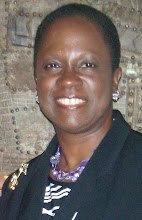A Word to Wise Clients: Your Lawyer Is Not Your Friend, Your Lawyer Is Not Your Enemy
The demands, doubts, debts and pressures of contested court cases and protracted negotiations cause some clients to mistake their legal counsel as an enemy or ally (friend). Clients often misidentify the opposition and misunderstand the rules of litigation. They feel apprehensive and respond in the defensive. They find the discovery process invasive and respond with evasive. They feel that the system is "unfair" and respond with insincere and unclear.
As a result clients, refuse to provide documentation, resist the court process and resort to challenging their legal counsel on points from content to format to deadlines for pleadings and proceedings. An onslaught of interrogatories, requests for documents, subpoenas and depositions can leave a client with thoughts and feelings of victimization, trauma and helplessness. Some clients rebel against their own hired lawyer and/or the court system under the seeming "search and seizure" of personal information. A client mayfeel that her or his life is an "open book" on public display and open to constant question.
In practice and actuality, "discovery" is the process which the legal system authorizes for parties on both sides of a matter to gather evidence prior to trial. A wise client works with her or his attorney rather than wasting brain power and billable hours in debating the court rules and defying the legal system.
Here is some wisdom for plaintiffs, defendants, petitioners and respondents involved in court battles:
1. LISTEN to your lawyer's advice.
2. REFRAIN from challenging court process, procedures and policies about the content, format and time limits for court filings and documents.
3. SUPPLY the information and documentation as your lawyer directs.
4. LIMIT your the subject of your attorney-directed telephone calls, e-mails and correspondence to the specific details and substantive facts of your matter.
5. KNOW that your lawyer has the duty to protect your legal rights not your personal feelings, beliefs and opinions.
6. FOLLOW the court rules and assist your attorney with meeting deadlines with full information and disclosure.
7. RESPECT the court rules by not contacting the court, opposing party or opposing counsel while you are represented by an attorney.
In all ways and at all times, address, communicate and correspond with your lawyers with the clear understanding that your lawyer is not your enemy and your lawyer is not your friend.
Recommended Resource: Letters to Young Lawyers by Alan Dershowitz
Subscribe to:
Post Comments (Atom)

No comments:
Post a Comment